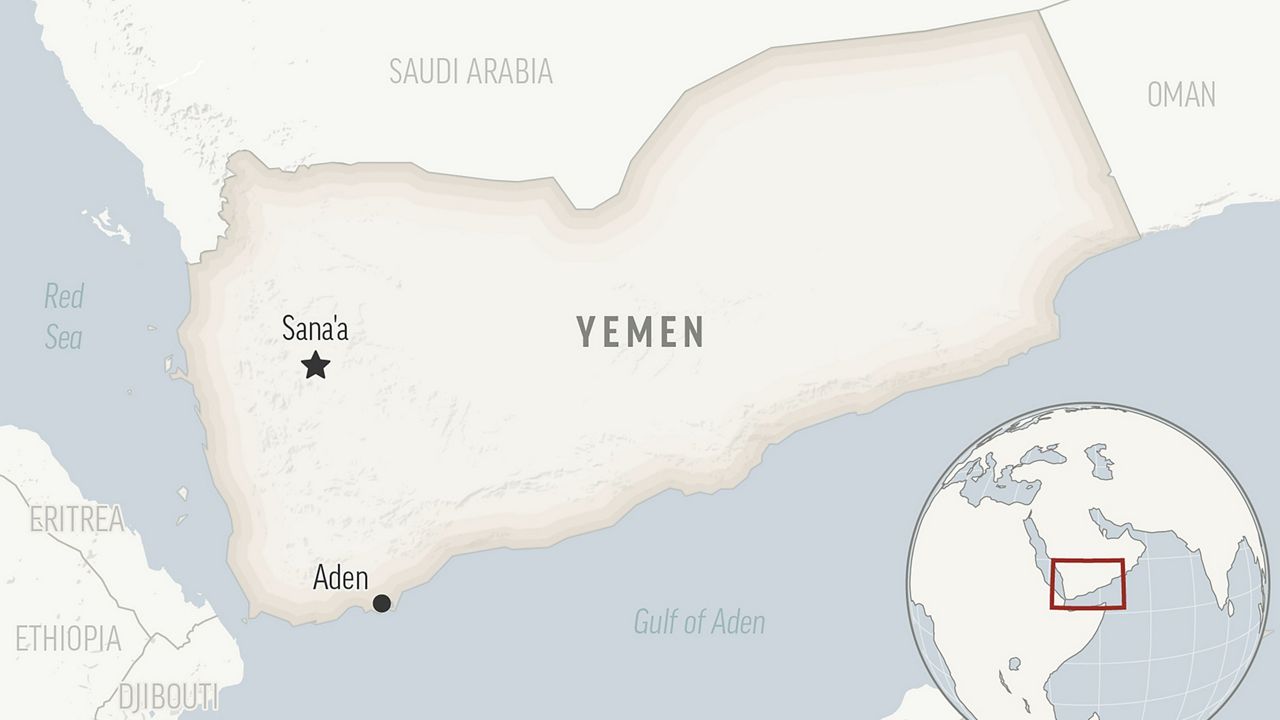Two American-flagged ships carrying cargo for the U.S. Defense and State departments came under attack by Yemen's Houthi rebels on Wednesday, officials said, with the U.S. Navy intercepting some of the incoming fire.
The attacks on the container ships Maersk Detroit and Maersk Chesapeake further raise the stakes of the group's ongoing attacks on shipping through the vital Bab el-Mandeb Strait. The U.S. and the United Kingdom have launched multiple rounds of airstrikes seeking to stop the attacks.
Meanwhile, Qatar, one of the world's top exporters of liquified natural gas, warned that its deliveries were affected by ongoing Houthi attacks over Israel's war on Hamas in the Gaza Strip.
Danish shipper Maersk, in a statement to The Associated Press, identified two of its vessels affected by the attacks as the U.S.-flagged container ships Maersk Detroit and Maersk Chesapeake. It said the U.S. Navy was accompanying its ships at the time.
"While en route, both ships reported seeing explosions close by and the U.S. Navy accompaniment also intercepted multiple projectiles," Maersk said. "The crew, ship, and cargo are safe and unharmed. The U.S. Navy has turned both ships around and is escorting them back to the Gulf of Aden."
Maersk said both vessels carried cargo belonging to the U.S. Defense and State Departments, as well as other government agencies, meaning they were "afforded the protection of the U.S. Navy for passage through the strait."
The ships were operated by Maersk Line, a U.S. subsidiary of Maersk that is "suspending transits in the region until further notice," the company said.
The U.S. military's Central Command in an online statement blamed the Houthis for the attack, saying they fired "three anti-ship ballistic missiles."
"One missile impacted in the sea," the statement said. "The two other missiles were successfully engaged and shot down by the USS Gravely," an Arleigh Burke-class guided missile destroyer.
Central Command did not respond to further questions from the AP.
The Houthis, who have been launching attacks on ships since November over Israel's war on Hamas in the Gaza Strip, did not immediately acknowledge the incident.
Since November, the rebels have repeatedly targeted ships in the Red Sea, saying they were avenging Israel's offensive in Gaza against Hamas. But they have frequently targeted vessels with tenuous or no clear links to Israel, imperiling shipping in a key route for global trade.
The U.S. and the U.K. have launched rounds of airstrikes targeting suspected missile storage and launch sites used by the Houthis in their attacks. The rebels now say they'll target American and British ships as well.
Meanwhile, Qatar announced its shipments of liquified natural gas had been affected by the Houthi attacks. Previous shipments had been delayed previously before heading through the Gulf of Aden and the Red Sea.
Qatar, which has served as a key mediator between Hamas and Israel, has yet to see any of its ships attacked, however. A statement from its state-owned QatarEnergy producer said that its "production continues uninterrupted, and our commitment to ensuring the reliable supply of LNG to our customers remains unwavering."
"While the ongoing developments in the Red Sea area may impact the scheduling of some deliveries as they take alternative routes, LNG shipments from Qatar are being managed with our valued buyers," the statement said.
The statement suggests QatarEnergy's cargos now are traveling around Africa's Cape of Good Hope, likely adding time to their trips.
